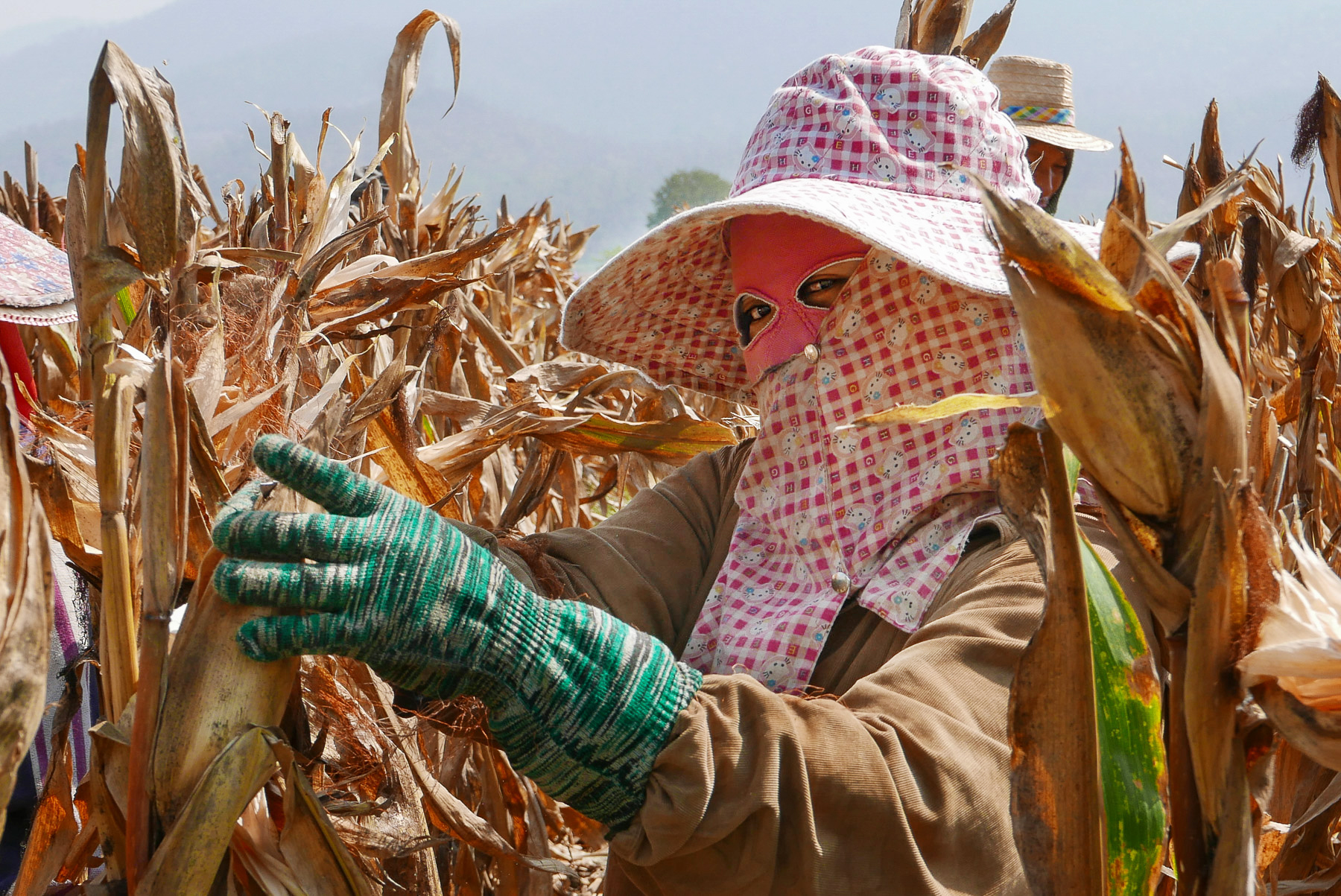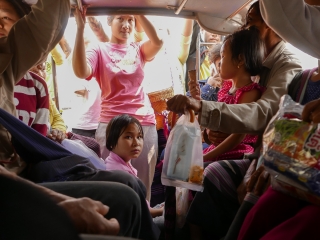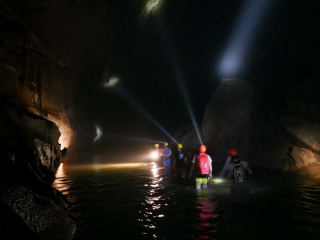Travel is not just about elevated emotional states, which you collect and then coat with an even more uplifting layer until given the occasion to tell these stories, excitedly and without pausing to breathe, to someone back home. Travel is also about a lot of in-betweenness and empty moments: time spent waiting in bus stops, train stations, and on the couches of guest houses; time spent finding your way; time spent yearning for something – a food, a word, a piece of clothing – that represents a familiar realm; time spent looking out the window of a moving vehicle without registering the incredible landscape rolling past because you miss home too much. All this time is miraculously wiped out from memory once you are no longer in the travel state, but it is an essential part of the experience.
These were my thoughts after a few days I spent just lying in bed with a feverish cold. The full and intense days in Mae Sot and its surroundings, with the sudden changes of temperature, had taken their toll, so by the time I reached my next destination four hours north, Mae Sariang, all I wanted to do was crawl under some sheets and forget about the world. I got out of bed only to try out my luck with the unpredictable opening hours of Thai pharmacies and to eat the breakfast prepared by the kind and caring host (given her generosity I never dared tell her about the more than occasional ant in the food).
When I finally felt better, I set out to make up for the lost time on a motorbike. After the several days of stagnation, questions about purpose sneaked their way through my mind. I was scolding myself for not making more of the experience and for not exploring more off the usual tourist path. Back in Bangkok, Bernadette, the Dutch cyclist, had encouraged me to be curious, to mingle and ask questions, and I was not really following up on her advice. How did I even hope to get some good photos by simply passing through? How about just following my curiosity for once and daring to explore the first thing that arouses my interest?
Like that withered corn field right over there, full of masked people.
I turned off the motorbike engine and parked on the side of the road, in partial disbelief of my own actions. I made a few steps towards the masked people, who were busy picking the corn, and plucked my camera, eager to get it done with. Their bodies were fully covered, with gloves on their hands and makeshift balaclavas under wide brim hats on their heads, so that they made for quite an intimidating sight, like a group of walking scarecrows. I gulped and took a few shots, desperately wishing I was invisible; I could tell from the fact that the workers had stopped talking to each other that they had noticed me. Not daring to get closer, I started moving parallel to the corn field and pretended to be too absorbed in my photographing to engage in any interaction. Two men, unmasked, who were standing at the edge of the cornfield – most likely the supervisors of the whole lot – were already talking and pointing in my direction. Deciding to stop the motorbike there already felt like a big and embarrassing mistake.
I then remembered that one of my unwritten travel rules had been to smile and be friendly no matter what, so I raised my arm and half-uttered a ‘hello.’ The workers mirrored my gesture and started laughing, luring me closer to show me what they were doing. They began to fight humorously over my attention, posing proudly with the freshly picked corn in their hands. One by one, they removed their hats and then their masks, and the faces of beautiful middle-aged women, with elegant makeup worn away by sweat, came to light. Let alone the surprise of seeing their faces, the makeup underneath the balaclavas left me open-mouthed; not even the scorching heat could deny them this feminine ritual. The women invited me into the corn field to show me how to pick the corn, and laughed at my clumsiness. We were all savoring the fun of the situation, and finding manifold ways to interact without any need for words. Because I had sparked quite a commotion with my camera – and the setting felt no longer that of a corn field, but that of a red carpet event – the two men at the edge were growing anxious and ushered the women back to work. They obeyed and waved at me, grateful that I had given them the opportunity to take a break, and I headed towards the motorbike, a hundred times more grateful for what they had given me.
In the evening as I viewed the day’s photos, I discovered the ones in the corn field were just average, but I resonated with them more than with any other photos taken so far, because I had invested more of myself into taking them. The experience made it into my personal travel mythology as the first success in completely letting go of reservations, prejudices and familiar grounds. It would be convenient to say that all it took was a feverish cold and some masks in a corn field, but actually all it took was being in Thailand.





Leave a Reply